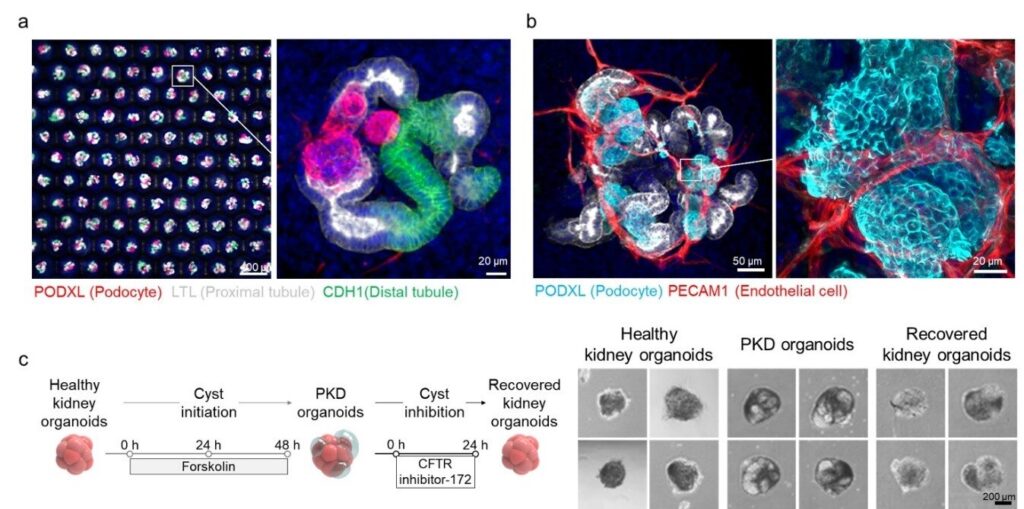A research team has successfully developed a platform capable of scalable, uniform production of organoids that mimic biological functions. Their research has recently been published in the journal Nature Communications.
Organoids are three-dimensional cellular constructs that replicate the functions of human organs, attracting significant attention in the fields of human organ development, disease modeling, and regenerative medicine research. However, the heterogeneity and low reproducibility of organoids present challenges to their scalable production, limiting their practical application in clinical trials and drug development processes. Additionally, current technologies face limitations in producing organoids at scale, falling short of meeting industrial demands.
To address these challenges, the research team has developed a platform called UniMat (Uniform and Mature Organoid Culture Platform), which enables the scalable production of mature organoids. This platform is implemented using a three-dimensional engineered membrane made of extremely fine nanofibers—about 1/200 the width of a human hair—providing a structural environment that allows for uniform organoid formation while also enhancing nutrient and differentiation factor delivery through material permeability, which is crucial for organoid differentiation and maturation.

Using UniMat, the team successfully produced kidney organoids featuring nephron structures and blood vessels similar to those found in human kidneys from human-induced pluripotent stem cells, achieving consistent quality and greatly improving production efficiency. Furthermore, they used UniMat to establish a polycystic kidney disease model, demonstrating the potential for standardized organoid-based disease modeling and drug evaluation.
The team was led by Professor Dong Sung Kim and researcher Dohui Kim from the Department of Mechanical Engineering at POSTECH (Pohang University of Science and Technology), and was carried out in collaboration with Professor Tae-Eun Park and researcher Hyeonji Lim from the Department of Biomedical Engineering at UNIST (Ulsan National Institute of Science and Technology).
Professor Kim of POSTECH, who led the research, explained the significance of the study, “Through these research outcomes, we not only accelerate organoid-based R&D that requires high reproducibility and reliability, but we also expect to make significant contributions to the development of animal alternative testing methods, which are gaining increasing attention.
“By addressing both the quality assurance and scalable production challenges of organoids with UniMat, we have laid the foundation for the practical application of organoids in clinical and pharmaceutical industries.”


